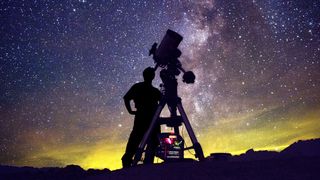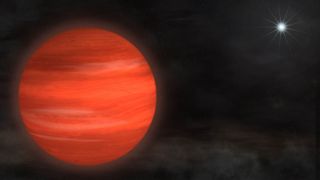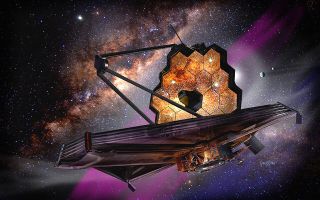space
Editor's Picks
Latest about space
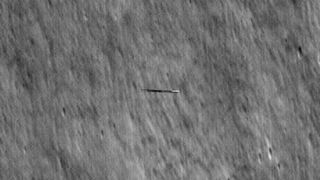
NASA spacecraft snaps mysterious 'surfboard' orbiting the moon. What is it?
By Jennifer Nalewicki published
NASA's Lunar Reconnaissance Orbiter photographed a mysterious, surfboard-shaped object orbiting the moon. Here's what it really was.
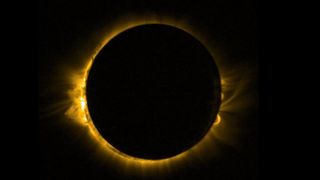
Solar eclipse 2024: 8 things to watch for during totality
By Jamie Carter last updated
From "diamond rings" to Baily's beads, here's what to look for today during the brief darkness within the path of totality.
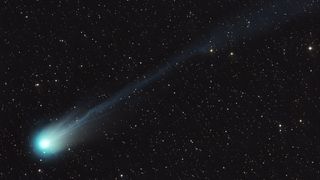
Explosive green 'Mother of Dragons' comet now visible in the Northern Hemisphere
By Jennifer Nalewicki published
The green comet 12P/Pons-Brooks is now visible in the night sky in North America. Here's how to see it.
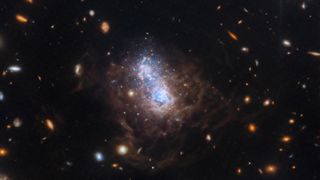
Space photo of the week: James Webb telescope reveals surprising starburst in ancient galaxy
By Jamie Carter published
New infrared observations from the James Webb Space Telescope unveil a galaxy far, far away that's creating new stars.
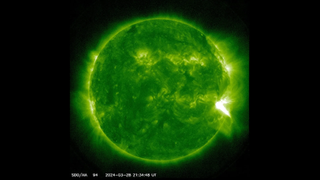
Powerful X-class solar flare slams Earth, triggering radio blackout over the Pacific Ocean
By Jennifer Nalewicki published
On March 28, Earth was hit by an X-class solar flare that was strong enough to ionize part of the planet's atmosphere.
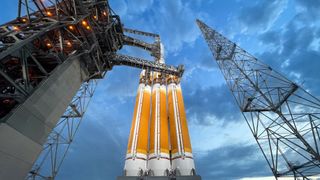
Secretive Delta IV Heavy rocket launch postponed indefinitely
By Sascha Pare last updated
The final liftoff of a United Launch Alliance Delta IV Heavy rocket was postponed indefinitely following a last-minute nitrogen issue.
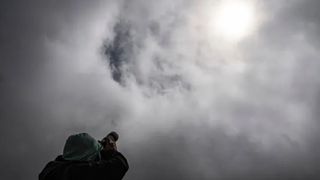
What happens if it's cloudy for the April 8 solar eclipse?
By Joe Rao published
Though everyone is hoping for clear skies, here's what might happen if an eclipse-chaser's worst enemy — clouds — decides to make an appearance.
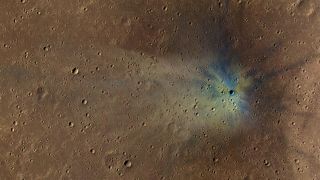
Single enormous object left 2 billion craters on Mars, scientists discover
By Sascha Pare published
An object that slammed into Mars roughly 2.3 million years ago created 2 billion smaller craters around the main Corinto impact crater, near the Red Planet's equator.
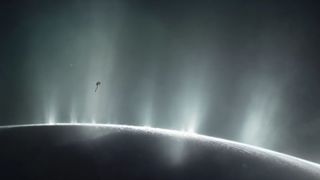
NASA only needs a single grain of ice to detect alien life on Enceladus, study finds
By Sharmila Kuthunur published
The icy moons of Saturn and Jupiter shoot enormous geysers into space that may contain evidence of life. New research shows that NASA only needs to grab a few grains of ice from these plumes to find out for sure.
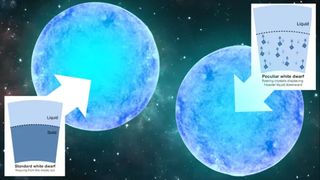
Newly discovered 'fountain of youth' phenomenon may help stars delay death by billions of years
By Robert Lea published
Recent observations show that some white dwarf stars suddenly stop cooling. Now, scientists propose a 'fountain of youth' mechanism that may explain how these stellar husks avoid death for billions of years.
Sign up for the Live Science daily newsletter now
Get the world’s most fascinating discoveries delivered straight to your inbox.
